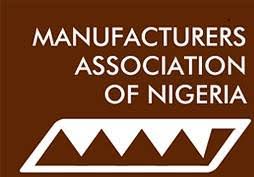BUSINESS

WHY MANUFACTURERS, MARKETERS WANT NIGERIA’S REFINERIES SOLD OFF
Nigeria’s long-troubled government-owned refineries are once again in the spotlight, with louder calls from key industry players urging the Federal Government to sell them off and end what many now see as a wasteful burden on the nation.
Billions Spent, Nothing to Show
Over the years, the government has pumped in over $3 billion to revive the Port Harcourt, Warri, and Kaduna refineries — yet none of them is working today. In fact, the Port Harcourt refinery, after being declared “operational,” has been shut down again for maintenance that has already exceeded its one-month target.
The Manufacturers Association of Nigeria (MAN) says enough is enough. According to its Director-General, Segun Ajayi-Kadiri, these refineries have become a drain on Nigeria’s economy with absolutely no returns.
“Those four refineries are just a pure drain on the Nigerian economy. It’s not fair to the Nigerian people. The government should hand them over to private investors who will make them work,” Ajayi-Kadiri stressed on a live TV programme.
He argued that selling them off will reduce fraud and inefficiency, while opening the door for competitive, transparent private operations — much like Dangote’s refinery.
Marketers, Analysts, Industry Groups All Agree
It’s not just MAN raising the alarm.
The Crude Oil Refineries Association of Nigeria (CORAN) says the refineries should simply be sold off, even as scrap, with the proceeds channelled into supporting modular refineries that can quickly boost local fuel production.
Major Energy Marketers Association of Nigeria (MEMAN) wants the plants handed over to professional refinery managers to ensure they actually work and create healthy competition for Dangote. MEMAN’s Executive Secretary, Clement Isong, noted that political interference has always stopped the NNPC from taking tough, business-like decisions, such as trimming its bloated staff.
Financial experts like Ibrahim Tajudeen of Chapel Hill Denham and economist Marcel Okeke are also backing privatisation or at least a public-private partnership. Tajudeen said,
“Either the government sells them outright or sells a significant stake to private partners who can run them efficiently. The fact that Dangote can build and operate a refinery proves private investors are key.”
A Heavy Burden on Public Funds
The figures are staggering. According to multiple reports:
$1.5 billion was approved for Port Harcourt refinery rehabilitation in 2021.
$897 million for Warri, and $586 million for Kaduna.
N100 billion spent in just one year (2021) alone, with N8.33 billion paid out monthly.
From 2013 to 2017, nearly $400 million was used for so-called Turn Around Maintenance — with no real turnaround.
Even more worrying, these refineries continue to rack up overhead costs — salaries, maintenance contracts, security — despite being idle.
The Bottom Line
The reality, many industry insiders say, is clear: government ownership of refineries has failed. Selling them — or at least bringing in serious private partners — could finally break the cycle of waste, inefficiency, and corruption.
As Ajayi-Kadiri put it,
“Nigeria is too big to be pocketed by anyone. Let’s give the private sector room to run these assets and watch them thrive.”
With fresh debates heating up, Nigerians are watching closely to see if the government will finally let go of these expensive burdens and chart a new path for the nation’s oil sector.
"This represents a significant development in our ongoing coverage of current events."— Editorial Board









